This article was medically reviewed by Erik Kramer, DO, MPH and by wikiHow staff writer, Jennifer Mueller, JD. Dr. Erik Kramer is a Board-Certified Primary Care Physician at the University of Colorado. With over 15 years of experience, his clinical interests include obesity and weight management, diabetes care, and preventive care, as well as embracing a holistic approach to primary care. He received his Doctorate in Osteopathic Medicine (D.O.) from the Touro University Nevada College of Osteopathic Medicine and completed his residency at Central Maine Medical Center. Dr. Kramer is a Diplomate of the American Board of Obesity Medicine.
There are 12 references cited in this article, which can be found at the bottom of the page.
This article has been viewed 7,867 times.
"Hematuria" is simply the medical term for blood in your urine. While you shouldn't have blood in your urine, there are many reasons why this might happen, most of which aren't life-threatening. However, if you notice blood in your urine, contact your doctor as soon as possible. Your doctor will evaluate your family and medical history and may run tests to determine what's causing your hematuria. Since hematuria is a symptom, it's treated by eliminating whatever caused the blood in your urine.[1]
Steps
Seeing Your Doctor
-
1Look for pink, red, or brown urine. Visible blood in your urine typically isn't separate from the urine itself. Rather, it alters the color of your urine. Pee in a freshly flushed, clean toilet to best evaluate the color of your urine. You might also take a "sample" by peeing in a cup so you can examine it more closely.[2]
- Blood in the urine that you can't see is called "microscopic hematuria." This typically would be found by your doctor after a routine urine test and is typically not associated with any serious medical problems.[3]
- Your urine may also resemble the color of tea or cola.
-
2Eliminate common causes of blood in your urine. Blood in your urine doesn't necessarily indicate that you have a serious medical condition. There are some rather benign causes for hematuria, including:[4]
- Menstruation
- Strenuous exercise
- Sexual activity
- Injury or skin irritation
Tip: Hematuria from strenuous exercise typically resolves itself within 24 to 48 hours.
Advertisement -
3Make an appointment with your general practitioner. Typically, you'll see your general practitioner or family doctor first. They can help determine if your problem is more serious and you need to see a specialist.[5]
- Generally, hematuria is not a medical emergency, so there's usually no reason to go to the hospital. However, if you have other severe symptoms, use your best judgment to protect your health.
-
4Write down a list of symptoms you've been experiencing. Provide the date and time that you first noticed the hematuria and if that condition is continuing. If you're experiencing any other symptoms, add those to your list, even if they don't seem related to the hematuria. They may point your doctor to a possible cause of the hematuria.
- Also write down a list of all medications, vitamins, and other supplements you're taking, with dosages of each and when or how you take them. Some medications can cause hematuria, especially blood thinners, such as heparin or warfarin, aspirin-type medications, penicillins, cyclophosphamide (Cytoxan), and sulfa-containing drugs.
-
5Get a physical examination. Your doctor will examine you physically and discuss your family and medical history with you. Bring your lists with you so you can give them to your doctor.[6]
- Your doctor might recommend a pelvic or prostate examination, depending on your symptoms.
- Let your doctor know if anyone in your family has ever had polycystic kidney disease, sickle cell disease, or hemophilia.[7]
-
6Go to a urologist if it's recommended. Based on the examination, your doctor might refer you to a urologist for further testing. This doesn't necessarily mean that you have a serious medical condition. It simply means that your doctor wants a specialist's opinion.[8]
- Depending on your insurance policy, your doctor may need to provide you with a direct referral to a specific urologist. If you have the freedom to find one on your own, research several and try to find someone who makes you feel comfortable. You might also ask your friends and family for recommendations.
Determining the Cause
-
1Discuss your medical and family history with your doctor. Your medical history and your family's medical history might provide your doctor with some clues to help figure out the cause of your hematuria. This is particularly true if bleeding disorders or kidney diseases run in your family.[9]
- If you've recently had any infections or injuries, these might have caused your hematuria.
- Inherited diseases, known as polycystic kidney disease, can also cause hematuria, so your biological family's history is important. If you're not connected to your biological family, you might consider getting a DNA test to determine if you have a genetically heightened risk of any diseases that might cause hematuria.
-
2Provide a urine sample to test for infections. When you go to see your general practitioner, they will likely take a urine sample to confirm that there is still blood in your urine. If the problem has resolved itself since you initially made the appointment, they may schedule a followup appointment to ensure the hematuria is gone.[10]
- Try to provide your sample right away in the morning before you do any strenuous activities since it will give the best results. If you can, schedule a morning appointment with your doctor.
- Your doctor will analyze your urine sample to determine if you have a urinary tract infection. A urine sample can also indicate the presence of kidney stones or another kidney disease.
Tip: Based on the results of your urine sample, your general practitioner might recommend that you see a urologist for further testing.
-
3Get imaging tests to help identify the cause of your hematuria. Your general practitioner or urologist might send you to a radiologist for a computerized tomographic (CT) scan of your kidneys, ureters, or bladder. This test can help identify tumors or other abnormalities in your urinary system.[11]
- Typically, the radiologist will do an initial scan without contrast. If more detail is needed, the radiologist will inject a dye into your arm. This dye collects in the kidneys and travels out of your body through your urine, providing a complete outline of your entire urinary system.
-
4Have a cystoscopy to examine the bladder and urethra. With a cystoscopy, your doctor will thread a camera attached to the end of a narrow tube into your bladder. The camera provides pictures that allow your doctor to examine your bladder and urethra.[12]
- If your doctor finds signs of disease, they might recommend surgery or other further treatment to better understand the type of disease and its progression.
-
5Monitor your urine if no cause is identified. If all your tests come back negative, your doctor may not be able to identify the reason for blood in your urine. They will typically ask you to pay attention to the color of your urine and contact them if the problem happens again.[13]
- If you experience hematuria again, contact your doctor as soon as possible and let them know that the problem has returned.
Correcting the Problem
-
1Take antibiotics if you have a urinary tract infection. Urinary tract infections can be uncomfortable or even painful, but they're typically treated fairly easily with antibiotics. Make sure you take the entire round of antibiotics, even if your symptoms go away.[14]
- Drink plenty of water while treating the infection and avoid drinks that might irritate your bladder, such as coffee, alcohol, soft drinks, and other drinks that contain citrus juices of caffeine.
- A warm heating pad on your abdomen can help ease pressure and discomfort.
-
2Try prescription medication if you have an enlarged prostate. An enlarged prostate is a relatively common condition, particularly in older men. Medication is the most common treatment if you have mild to moderate symptoms. Some medications used to treat an enlarged prostate include:[15]
- Alpha blockers, which relax bladder neck muscles and muscle fibers in the prostate to make urination easier.
- 5-alpha reductase inhibitors, which prevent hormonal changes that cause prostate growth to shrink your prostate.
- Tadalafil (Cialis). While this medication is typically used to treat erectile dysfunction, it can also help reduce an enlarged prostate.
Tip: Your doctor might also recommend a combination of more than one type of medication to treat your condition.
-
3Drink lots of fluids to pass kidney stones. Smaller kidney stones typically can be passed through your urinary tract if you drink 2 to 3 quarts (1.9 to 2.8 liters) of water a day. Because passing even small stones can cause discomfort, your doctor might recommend ibuprofen (Advil), acetaminophen (Tylenol), or naproxen sodium (Aleve) to relieve the pain.[16]
- Your doctor might also prescribe a medication called an alpha-blocker to help the stones pass more quickly and with less pain.
- For larger stones, your doctor might recommend a procedure that uses sound waves to break up the stones so they can pass naturally.
- If you have kidney stones that are too large to break apart or that are causing significant pain or bleeding, you might need surgery to remove them.
-
4Discuss surgery and other treatment if a tumor is found. If you have hematuria, the worst-case scenario is that your doctor discovers a tumor in your bladder or kidney that turns out to be cancerous. While this can be scary news, your doctors will work with you to develop a treatment plan based on the type of cancer and its stage, as well as your general health and personal preferences. With early detection, you have far more options to treat and eliminate the cancer.[17]
- Apart from surgery, common treatments for cancer include chemotherapy, radiation therapy, and immunotherapy, which stimulates your immune system to fight the cancer.
-
5Follow up with your doctor to make sure there's no more blood in your urine. Even if the cause of your hematuria is successfully treated, your doctor will likely want to check back with you a month or so after treatment to make sure the problem has not returned. In the meantime, you should call your doctor if the hematuria does return or if you notice any other related symptoms.[18]
- Your doctor may want to see you several times over the next few months to check your urine, particularly if all the tests came back negative and a cause couldn't be determined.
Warnings
- If you smoke and have hematuria, it's a good time to make a plan to quit. Smoking cigarettes is linked to urinary tract cancers.[20]⧼thumbs_response⧽
- If your urine is the color of cola, or if your hematuria is accompanied by a fever or pain in your lower abdomen or side, call your doctor immediately.[21]⧼thumbs_response⧽
References
- ↑ https://www.kidneyfund.org/kidney-disease/kidney-problems/blood-in-urine.html
- ↑ https://my.clevelandclinic.org/health/diseases/15234-hematuria
- ↑ https://www.urologyhealth.org/urologic-conditions/hematuria
- ↑ https://www.kidneyfund.org/kidney-disease/kidney-problems/blood-in-urine.html
- ↑ https://my.clevelandclinic.org/health/diseases/15234-hematuria
- ↑ https://www.niddk.nih.gov/health-information/urologic-diseases/hematuria-blood-urine
- ↑ https://www.kidney.org/atoz/content/hematuria-adults
- ↑ https://www.urologyhealth.org/patient-magazine/magazine-archives/2016/winter-2016/is-blood-in-your-urine-a-reason-to-be-concerned
- ↑ https://www.kidney.org/atoz/content/hematuria-adults
- ↑ https://www.kidneyfund.org/kidney-disease/kidney-problems/blood-in-urine.html
- ↑ https://familydoctor.org/condition/microscopic-hematuria/
- ↑ https://www.aafp.org/afp/2006/0515/p1748.html
- ↑ https://www.kidney.org/atoz/content/hematuria-adults
- ↑ https://www.drugs.com/health-guide/hematuria.html
- ↑ https://medlineplus.gov/ency/article/000381.htm
- ↑ https://www.health.harvard.edu/blog/5-things-can-help-take-pass-kidney-stones-2018030813363
- ↑ https://www.radiologyinfo.org/en/info/hematuria
- ↑ https://www.kidney.org/atoz/content/hematuria-adults
- ↑ https://www.drugs.com/health-guide/hematuria.html
- ↑ https://www.drugs.com/health-guide/hematuria.html
- ↑ https://www.drugs.com/health-guide/hematuria.html
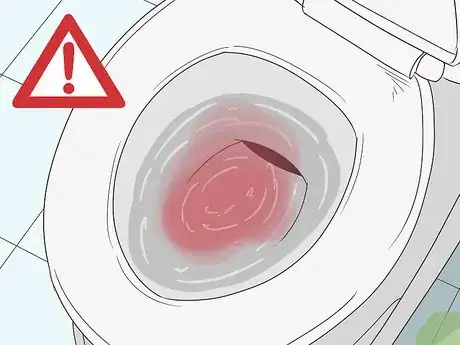


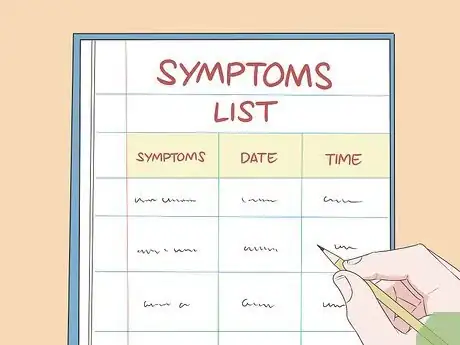

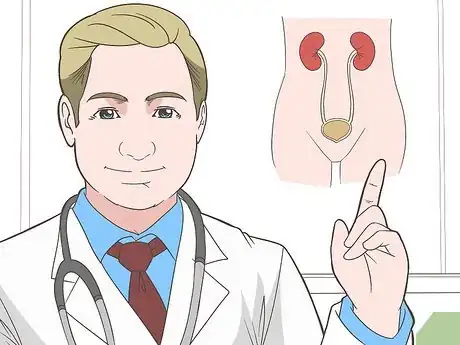

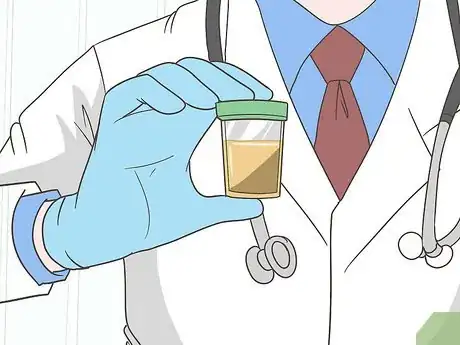
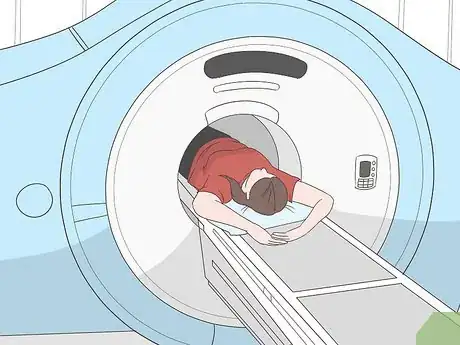
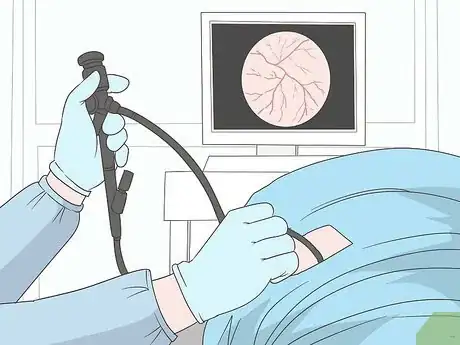
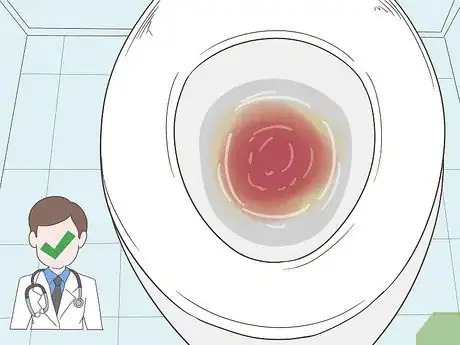

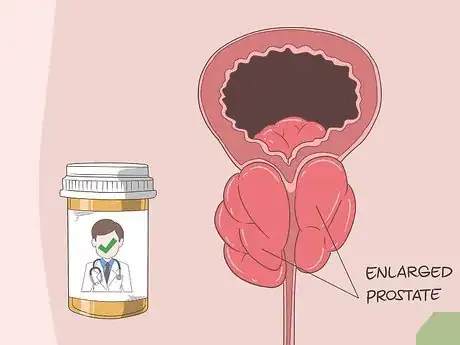

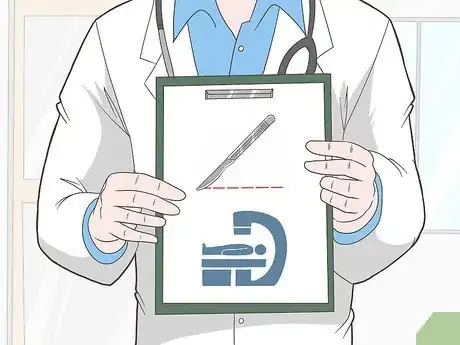








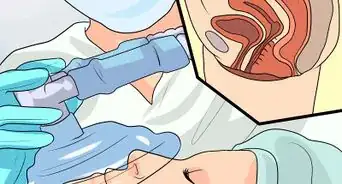




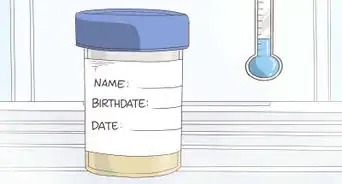












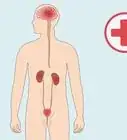



































Medical Disclaimer
The content of this article is not intended to be a substitute for professional medical advice, examination, diagnosis, or treatment. You should always contact your doctor or other qualified healthcare professional before starting, changing, or stopping any kind of health treatment.
Read More...